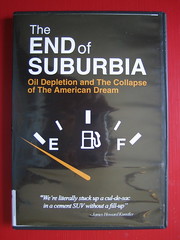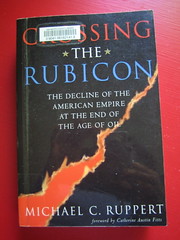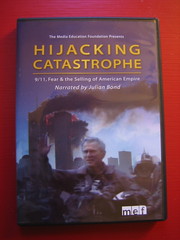End of Suburbia
Being a visual learner, movies are eagerly consumed by the Bigger Brain. This one served up several authors already known to the BB including Heinenberg, Ruppert and James Kunstler who wrote The Geography of Nowwhere. Most intriguing of the talking heads was Mathew Simmons who was part of Cheney's energy committee. (This is the committee that wouldn't release their report.) The BB showed increased growth when Simmons casually explained how we have reached our limits in electricity generation, which proved to the BB that the administration is well aware of our limitations and has used that information to set its agenda.
A good introduction to peak oil. Has a campy period piece flair for what suburbia was intended to be and how it will become a ghost town when gasoline isn't cheap anymore
A good introduction to peak oil. Has a campy period piece flair for what suburbia was intended to be and how it will become a ghost town when gasoline isn't cheap anymore



